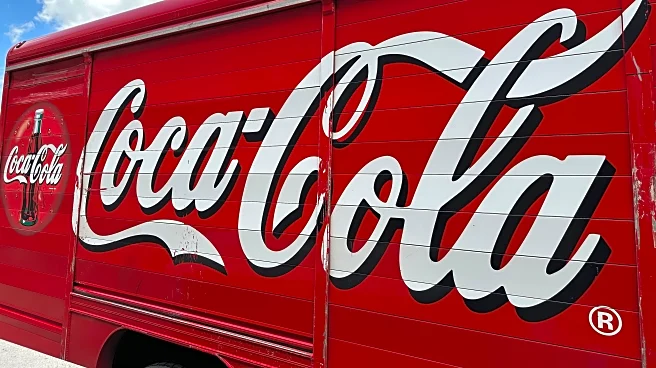What's Happening?
Hasbro, a company known for popular toys and games such as Monopoly and Play-Doh, has announced its decision to move its headquarters from Pawtucket, Rhode Island, to Boston's Seaport District. The relocation will involve moving 700 full-time employees to the new location by the end of 2026. The new headquarters will occupy seven floors and 265,000 square feet of office space at 400 Summer Street. Despite the move, Hasbro has pledged to maintain strong ties with Rhode Island, continuing its support for Hasbro Children’s Hospital and recruiting from local colleges and universities. This move follows a similar relocation by LEGO to Boston, indicating a trend among toy companies to establish operations in the city.
Why It's Important?
The relocation of Hasbro's headquarters to Boston is significant for several reasons. It represents a shift in the business landscape, with Boston emerging as a hub for innovation and technology, attracting major companies like Hasbro and LEGO. This move is expected to boost Boston's economy by creating 700 new jobs, contributing to the city's growth as a center for corporate operations. Additionally, Hasbro's commitment to maintaining ties with Rhode Island highlights the company's dedication to its historical roots and community support, ensuring continued economic and educational benefits for the state.
What's Next?
As Hasbro transitions to its new headquarters, the company is likely to focus on leveraging Boston's status as an innovation and tech center to enhance its operations. This move may lead to increased collaboration with local tech firms and educational institutions, fostering growth in both physical and digital play. Stakeholders in Rhode Island may respond by seeking new partnerships to fill the economic gap left by Hasbro's departure, while Boston may see further interest from other companies looking to capitalize on its growing reputation as a business hub.
Beyond the Headlines
The relocation of Hasbro to Boston may have broader implications for the toy industry, signaling a shift towards digital and tech-driven innovation. As companies like Hasbro and LEGO establish themselves in tech-centric cities, there may be increased emphasis on integrating technology into traditional toys and games. This trend could lead to new product developments and collaborations, potentially reshaping the industry landscape and consumer experiences.










